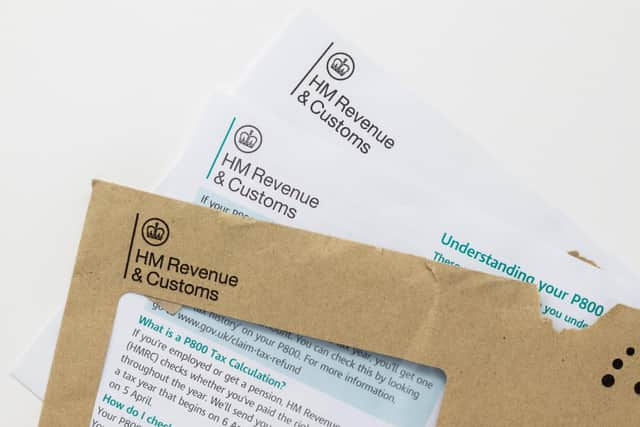Two Derry people among four convicted of fraud worth over £250k
and live on Freeview channel 276
The three men and a woman, working in the construction industry in the north, were charged after false claims for tax repayments were uncovered by HM Revenue and Customs (HMRC) investigators. The fraudulent claims, over £260k in total, were submitted to the HMRC Construction Industry Scheme (CIS) between January 2015 and September 2017.
Edward Copeland, aged 51 with an address in Carryduff, was at the centre of the conspiracy and was arrested when HMRC officers searched his home in June 2017. On the same date, 52-year-old Deborah Ramsey, from Newbuildings, was arrested following a search at her place of work, a building firm in Derry.
Advertisement
Hide AdAdvertisement
Hide AdEvidence uncovered on mobile phones led HMRC to arrest Mr Copeland and Mrs Ramsey, while further evidence seized during the searches led to Michael Gerard Donaghy, aged 57 and from Claudy, and 34-year-old Belfast man Stephen Matthew Fegan being also charged with fraud.


HMRC found that Mr Copeland was using two businesses to exploit the CIS, which sees contractors deducting tax from payments to subcontractors that should then be passed on to HMRC.
Lucie Irving, Assistant Director, Fraud Investigation Service, HMRC, said: “The majority of individuals and businesses pay the tax that is due – however there remains a determined minority like Mr Copeland who refuse to play by the rules.
“HMRC is on the side of the law-abiding majority. By tackling the most serious forms of tax crime we are creating a level playing for businesses and citizens. We are determined that they shouldn’t be disadvantaged or impacted by the criminal actions of others.
Advertisement
Hide AdAdvertisement
Hide Ad“We are successful in nine out of ten cases we bring to court and this case is another example of that success.”
The case reached its conclusion on September 7 when Mr Copeland was jailed for two years for his role in the fraud and ordered to pay a £150,000 confiscation order. The other defendants were sentenced after pleading guilty at earlier hearings.